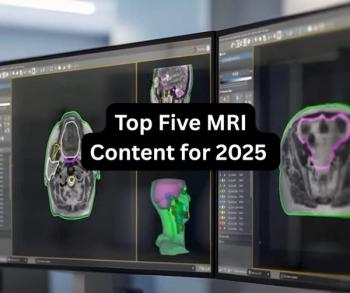
- Diagnostic Imaging Vol 32 No 10
- Volume 32
- Issue 10
Incidental findings can predict cardiac disease
Radiologists can predict cardiovascular disease using incidental findings from routine diagnostic CT, according to a study appearing in Radiology.
Radiologists can predict cardiovascular disease using incidental findings from routine diagnostic CT, according to a study appearing in Radiology. Using incidental findings of calcifications on the aortic wall on CT, along with minimal patient information such as age and gender, radiologists can stratify risk.
Dr. Martijn Gondrie, from the Julius Center for Health Sciences and Primary Care at the University Medical Center Utrecht in the Netherlands, and colleagues developed prediction models incorporating incidental aortic findings detected on chest CT. Scores were assigned for abnormalities including calcifications, plaques, elongation, and other irregularities.
The model incorporating the sum score for aortic calcifications best predicted future cardiovascular events.
Gondrie’s work is part of the Prognostic Value of Ancillary Information in Diagnostic Imaging project, which is investigating the relevance of unexpected imaging findings detected on chest CT.
Articles in this issue
over 15 years ago
Coronary CTA really works, but why isn't its use soaring?over 15 years ago
Case of the Monthover 15 years ago
Small pulmonary emboli still stump radiologistsover 15 years ago
Leukemia joins radiation risks for interventionalistsover 15 years ago
MRI reveals when cognitive impairment will advanceover 15 years ago
Imaging technique proves useful for ovarian cancerover 15 years ago
Delayed cardiac test saves moneyover 15 years ago
The deck is stacked against coronary CTA; why it mattersover 15 years ago
We spend on end-of-life care at expense of patientsover 15 years ago
LifeImage takes sting out of viewing patient CDsNewsletter
Stay at the forefront of radiology with the Diagnostic Imaging newsletter, delivering the latest news, clinical insights, and imaging advancements for today’s radiologists.












